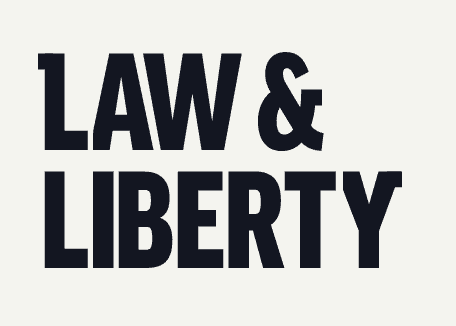Opinion

Peaceable Assembly: Accept No Substitute
Aristotle told us that humans are social animals—interaction with each other is essential to our wellbeing. Technology has enabled us to communicate with family, friends, and associates cheaply, easily, and instantaneously around the globe, which is great. But...

The First Amendment Doesn’t Protect Big Tech’s Censorship
Does the Constitution require Americans to accept Big Tech censorship? The claim is counterintuitive but the logic is clear: If you submit a letter to this newspaper, the editors have no legal obligation to publish it, and a statute requiring them to do so would be...

Courts Grant NJ Gov. Murphy Blank Check on “Emergencies”
The Appellate Division of the New Jersey Superior Court just gave Gov. Phil Murphy a blank check to make law through executive orders anytime there are signs of an economic downturn approaching. In Kravitz v. Murphy, the court ruled New Jersey’s Disaster Control Act—a...

Court Packing Is a Dangerous Game
The intimidation game has begun. President Biden announced last Friday the formation of a commission on reforming the Supreme Court, and Democrats in the House and Senate responded on Wednesday by announcing that a bill to add four justices to the high court is...

Biden Lets Slip the Dogs of Regulation
The first month of President Biden’s administration began with nearly two-score shots across the bow signaling the continued strength of the Leviathan state. In his first days in office, the new President issued 37 executive orders (EOs), more than the Trump and Obama...

The Constitution Can Crack Section 230
Section numbers of federal statutes rarely stir the soul, but one of them, 230, stirs up much fear, for it has seemed to justify censorship. Relying on it, tech companies including Google and Twitter increasingly pull the plug on disfavored posts, websites and even...

Main Street Investors Must Push Back Against SEC Power Grab
Imagine Congress enacting a law providing that every trade you or your broker makes in the stock market must be reported to the Securities and Exchange Commission for storage in a government database. This forced surrender is analytically no different from reporting...

Out of the Separation-of-Powers Frying Pan and Into the Nondelegation Fire: How the Court’s Decision in Seila Law Makes CFPB’s Unlawful Structure Even Worse
The U.S. Supreme Court’s June 29, 2020 decision in Seila Law LLC v. Consumer Financial Protection Bureau fixed a glaring constitutional defect in the way Congress structured the Consumer Financial Protection Bureau (CFPB or Bureau). “[D]eviat[ing] from the structure...

When The Wolf At The Door Is Your Governor
The novel coronavirus pandemic has many Americans struggling to keep the wolf from the door of their homes and businesses. For Pennsylvanians, the threat has become all the more menacing, because the wolf at their doors is the governor—and the state supreme court just...

Baker usurping the role of Legislature
The Governor's Executive Order shutting down “non-essential” businesses and organizations has been in place since March 24. While Gov. Charlie Baker has modified the order and eased some of his restrictions, that doesn’t legitimize them. His orders are not laws passed...
